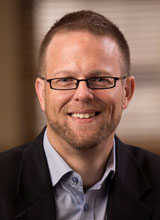
Adam specialises in global health security and international relations. His research and teaching explores how governments and multilateral organisations cooperate and interact when adverse health events such as disease outbreaks, epidemics and pandemics occur, as well as how they respond to emerging health and security challenges. Adam's most recent research examines civil-military cooperation in health and humanitarian crises, and the correlations between gender, sexuality, health and security. Read more.

Dr Rebecca Katz is an Associate Professor and Co-Director of the Center for Global Health Science and Security at Georgetown University. Prior to coming to Georgetown, she spent ten years at The George Washington University as faculty in the Milken Institute School of Public Health. Her research is focused on global health security, public health preparedness and health diplomacy. Since 2007, much of her work has been on the domestic and global implementation of the International Health Regulations.
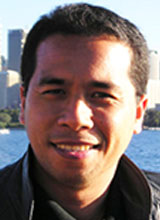
Associate Professor Ansariadi Ancha is a lecturer and researcher at the Department of Epidemiology, School of Public Health, Hasanuddin University, Indonesia.
He is responsible for teaching, supervising undergraduate students for their final year project and conducting research. Ansariadi qualified in undergraduate Public Health from Hasanuddin University in 1995 and completed a Master of Science in Public Health from Griffith University in 2004. His research interest is social and geographical aspects of adverse pregnancy outcomes. Ansariadi teaches basic epidemiology and data management to undergraduate public health students. Read more.

Beth Cameron is NTI's vice president for global biological policy and programs. Cameron previously served as the senior director for global health security and biodefense on the White House National Security Council (NSC) staff, where she was instrumental in developing and launching the Global Health Security Agenda and addressed homeland and national security threats surrounding biosecurity and biosafety, biodefense, emerging infectious disease threats, biological select agents and toxins, dual‐use research, and bioterrorism. Read more.

Dr. Lucy Chen is the Global Health Advisor at the National School of Development (NSD), Peking University from 2018. From 2007 to 2018, she led the establishment of the Institute for Global Health (IGH) at the Peking University and developed its capacity and reputation in China-African development policy research.
Since 2013, Dr. Chen has participated the group works in the development of China’s international cooperation strategies and plans for African countries, she is a Member of newly established The Development Cooperation Expert Committee for the Government of China. Since 2015, her institution has been working with partners inside and outside of China acquiring valuable insights to support China’s health sector industrialization investments in African countries as well as to support The Belt and Road Initiative.
Dr. Lucy Chen has deep experience working in government, research institutions, consulting as well as private companies. These experiences have allowed her to hold influential roles such as a sitting member of the Expert Committee of the China Development Bank (2014-present), lead health specialist at the CCIEE Fund (2015-2016), and Executive-Secretary at the China-Africa Health Collaboration Research Alliance (2012-2015).
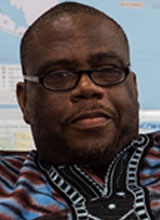
Dr. Mosoka P. Fallah cofounded the National Public Health Institute of Liberia (NPHIL) in 20 months after the Ebola crises that ravaged his native Liberia. He was appointed by President Ellen Johnson-Sirleaf of Liberia as the Deputy Director for Technical Services overseeing the Divisions of Infectious Disease Epidemiology, National Public Health Laboratory, medical and Public health research among others. He is the Liberian Principal Investigator of the Largest Cohort of Ebola survivors in the world in a five-year NIH-sponsored ebola natural history study. He also served as Chairman of the Department of Biochemistry at the A.M. Dogliotti College of Medicine, University of Liberia. While still a PhD student at the University of Kentucky, he founded Refuge Place International to address the very high maternal and neonatal deaths in his native country Liberia. He then went on to the Harvard Chan School of Public Health to study Global Health with a concentration in Infectious Disease Epidemiology. In 2013 he returned to his native country to work on the issue of maternal and child health in a country ravaged by a civil war, which was trying to rebuild its health system. Just as he opened Refuge Place in the Chicken Soup Factory slum of Liberia Ebola struck. Refuge place was shuttered. With his skills in epidemiology and program management, Mosoka became the head of the Ebola response, launching an active case finding system which became a model for the epidemic control. He grew up in Monrovia, which helped him build trust within communities that were struggling to deal with the disease that ravaged his hometown. He has extensive experience working in humanitarian crises with Doctors Without Borders in Liberia (MSF) during the heat of the civil war. With over ten years of experiences in development work. He has done consultancies for USAID, CHEMONICS, President Malaria Initiative (PMI), World Health Organization, United Nations Development Program (UNDP) and Action Against Hunger. Dr. Fallah has worked extensively with the Ministry of Health of Liberia, the medical centers, and other nonprofit organizations to jump start this flagship program in Liberia. For his work in the Ebola response, he was named as one of the Time Magazine Person of the year in 2014.
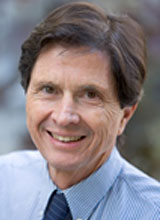
David Heymann is currently professor of Infectious Disease Epidemiology, London School of Hygiene and Tropical Medicine; head of the Centre on Global Health Security at Chatham House, London; and chairman of Public Health England, UK. Read more.
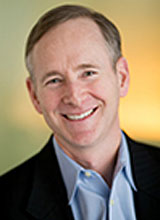
The Center for Health Security is dedicated to protecting people's health from the consequences of epidemics and disasters. Dr Inglesby is also Professor in the Department of Environmental Health and Engineering in the Johns Hopkins Bloomberg School of Public Health with a Joint Appointment in the Johns Hopkins School of Medicine. Read more.
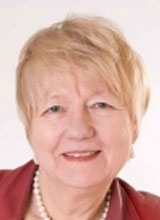
Ilona Kickbusch is the Director of the Global Health Centre and adjunct professor at the Graduate Institute of International and Development Studies in Geneva. She has been deeply involved in the development of the Health 2020 European health policy framework. She was a member of the independent Ebola interim assessment panel of the WHO. Read more.

Vivian Lin is the Chair of Public Health and was Head of the School of Public Health from 2000-2005. Since arriving in Australia in 1982, she has worked in NSW Health, Victorian Health Department and its successor, National Occupational Health and Safety Commission and Commonwealth Department of Health and Family Services. Read more.
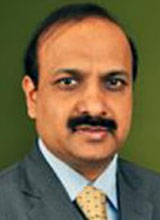
Professor Sanjay Zodpey presently works as Vice President - Academics, Public Health Foundation of India (PHFI), New Delhi and also holds leadership position as Director at Indian Institute of Public Health, Delhi. He also served as Director of Indian Institutes of Public Health at Gandhinagar and Bhubaneswar. Earlier he worked as Professor at Department of Preventive and Social Medicine, Faculty in Clinical Epidemiology Unit and Vice Dean at Government Medical College, Nagpur, India. Read more.









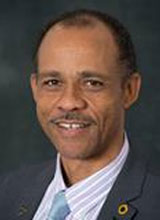
Professor Akin Abayomi is the Chief Pathologist and Head of the Division of Haematology and Associate Professor Faculty of Health Sciences, Stellenbosch University. I am a specialist in internal Medicine and Haematology, I studied at the Royal Medical College of St Bartholomew's Hospital in the University of London where I attained my first graduate degree in Medicine. Read more.
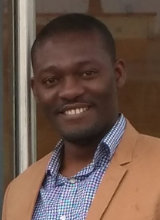
Dr Seye Abimbola is a health systems and global health researcher. He has worked as a health care practitioner and/or researcher in Nigeria, Australia, and the United Kingdom. From 2009-10, Dr Abimbola was a Rotary Foundation Ambassadorial Scholar at the University of Sydney, and from 2010-13 he was a research fellow at the National Primary Health Care Development Agency in Nigeria. Dr Abimbola is a visiting research fellow at the University of Oxford where he studies the role of governance in the adoption and scale up of health system innovations. He is a lecturer in global health at the University of Sydney, and the editor in chief of BMJ Global Health.
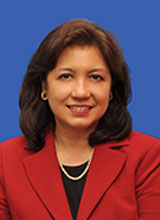
Mely Caballero-Anthony is Associate Professor and Head of the Centre for Non-Traditional Security (NTS) Studies at the S. Rajaratnam School of International Studies (RSIS), Nanyang Technological University, Singapore. She is also Secretary-General of the Consortium on Non-Traditional Security Studies in Asia. Read more.
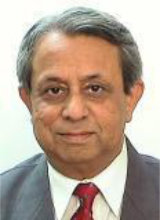
Mukesh Chawla, PhD (Economics), Chief Adviser, Global Health Security in the Health, Nutrition and Population practice at the World Bank, and Coordinator, Pandemic Emergency Financing facility, has worked for over twenty-five years with governments and international development partners in Europe, Asia and Africa on a variety of health sector issues, including insurance solutions for global public goods, design and diffusion of complex innovations in health, identification of innovative business solutions to address systemic and process issues in the health sector, and economics of health. His current area of interest and responsibility is helping countries get better prepared to respond immediately and effectively to disease outbreaks that have the potential of assuming pandemic proportions.
Dr. Chawla has written extensively on the role of markets and market-like institutions in the creation of incentives that strengthen health systems, fiscal space for health, innovations in health financing, design of health sector reforms and economics of aging populations. Prior to joining the Bank, he held a research faculty position at Harvard University, Boston, USA. Before that, as member of the Indian Administrative Service in India, he held several key government positions between 1980 and 1998. He attended St. Stephen’s College and Delhi School of Economics, Delhi, India, and Boston University, Boston, USA.

Dr Sara Davies is an Australian Research Council (ARC) Future Fellow and Associate Professor at the Centre for Governance and Public Policy, School of Government and International Relations, Griffith University, Australia. She is also an Adjunct Associate Professor at the Gender Peace and Security Initiative, School of Social Sciences, Monash University. Read more.
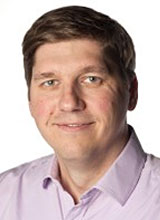
Stefan Elbe joined the Department in 2004 after holding previous positions at the London School of Economics, the International Institute for Strategic Studies, the University of Warwick, and the University of Essex. He has served as Head of the International Relations Department and as Director of Research for the School of Global Studies. Read more.
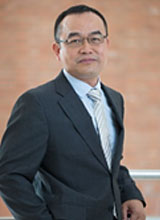
Dr Feng Cheng is a professor and Chief Physician at School of Medicine and Director of Global Health Program at Research Center For Public Health, Tsinghua University. He serves as Commissioner of Tsinghua University Degree Committee on Medicine and Biomedicine, Commissioner of the Eighth National Council for Population and Family Planning, President of China Alliance For South-to-South Health Cooperation Research, and Commissioner of Global Health Branch of China Preventive Medicine Association. Read more.
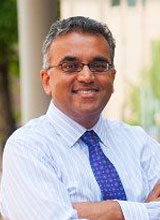
Ashish K. Jha, M.D., MPH, is the K.T. Li Professor of Global Health at Harvard University, Senior Associate Dean for Research Translation and Global Strategy at Harvard T.H. Chan School of Public Health and the Director of the Harvard Global Health Institute. Read more.
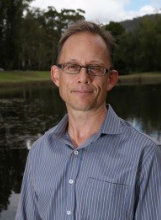
Professor Martyn Kirk is a National Health and Medical Research Council (NHMRC) Career Development Fellow studying human health threats from contaminated food, water and environments at the Australian National University. Professor Kirk was previously the program director of the Australian Field Epidemiology Training Program—the MAE program—and the coordinating epidemiologist of the OzFoodNet network for foodborne disease investigation. Professor Kirk is internationally recognised for assessing the global burden of foodborne diseases and investigating outbreaks crossing country borders. Professor Kirk regularly consults for national and international government agencies regarding infectious disease spread and capacity building. Professor Kirk has published widely on surveillance and outbreak investigation of infectious diseases. He is an investigator on the EU funded COMPARE project to track zoonotic disease outbreaks through Europe and holds NHMRC grants on the use of whole genome sequencing for public health and international response to outbreaks.
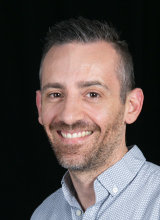
Associate Professor Maurizio Labbate BSc (Hons) PhD MASM
Associate Professor in Microbiology
School of Life Sciences and ithree Institute, University of Technology Sydney (UTS)
Maurizio holds a Bsc (Hons) and PhD in Microbiology and has published approximately 50 documents including journal publications, book chapters, books and policy-related papers. He has attracted over AU$3 million dollars in external funding and leads a research group with core expertise in bacterial evolution with a strong focus on lateral gene transfer, the mechanism by which bacteria share genetic information. His research groups’ broad goal is to apply their core expertise in bacterial evolution to address One Health problems that straddle environmental, medical (e.g. antimicrobial resistance) and agricultural sciences (e.g. diseases affecting aquaculture).
Over the last 5 year Maurizio has expanded his research activity to include One Health principles – a concept that recognises the links between human, animal and environmental systems in infectious disease and therefore, requires approaches to be multidisciplinary. As a result, he has led or participated in highly collaborative research that integrates expertise across multiple disciplines including microbiology (medical and environmental), eco-toxicology, microbial ecology, aquaculture, veterinary science, social sciences (including human geography) and decision-making, policy development and One Health governance. He has engaged with the Australian Federal Government unit responsible for Antimicrobial Resistance policy making in order to address explicit knowledge gaps they identified. In addition, he has engaged with the NSW Department of Primary Industries and associated oyster farmers to address infectious diseases affecting the industry
Maurizio’s research in antimicrobial resistance is recognised nationally and internationally. He is an advisor on the board for Global Alliance for Infections in Surgery and was Rapporteur at the 2016 Australian Academy of Sciences Theo Murphy High Flyers Think Tank. He contributed a commentary to the AMR Control 2017 book alongside contributors such as the World Bank Group and The Federal Republic of German Ministry and engaged in public outreach including the publication of two articles in The Conversation on antibiotic resistance.

Dr Lee is trained in International Relations and Public Administration with a focus on international political economy. She spent over twenty years at the London School of Hygiene and Tropical Medicine, initially analyzing the role of the UN in health. Read more.

Raina MacIntyre (MBBS Hons 1, M App Epid, PhD, FRACP, FAFPHM) is Professor of Global Biosecurity and NHMRC Principal Research Fellow at the Kirby Institute, UNSW Sydney, and an adjunct professor at Arizona State University. She leads a research program in control and prevention of infectious diseases. Her current research focuses on vaccines (including smallpox), emerging infections, personal protective equipment, aerosol dynamics, dispersion of respiratory pathogens, and bioterrorism detection and prevention. Read more.
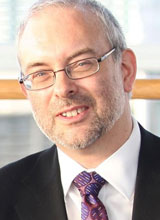
Colin McInnes holds the UNESCO Chair in HIV/AIDS Education and Health Security in Africa and is the University’s Director of Research Excellence. He is a Fellow of the Academy of Social Sciences and a Fellow of the Royal Society for the Arts. In 2014 he was appointed by the Secretary of State for International Development as a Non-Executive Director of the UK National Commission (UKNC) for UNESCO, with special responsibility for the Social and Human Sciences, and in 2015 was elected vice-chair of the UKNC. In 2017 he received the Special Achievement Award at the inaugural Wales Social Research awards, for his 'outstanding personal achievement in research'.
Colin was a lecturer in the Department of War Studies, The Royal Military Academy Sandhurst; Visiting Research Fellow at King's College London; and Special Adviser to the House of Commons Defence Committee. He was also Chair of the British International Studies Association; a member of the ESRC's Strategic Research Board and International Advisory Committee; member of WHO's expert group on Global Health Diplomacy; and Director of the UK Research Councils' Security Research Forum. Colin currently sits on a range of advisory panels covering various aspects of International Relations, was a member of the REF2014 panel for Politics and International Relations, and is member of a variety of editorial boards including 'International Affairs'.He is currently advising Public Health Wales on its development of an international health strategy, and the InterAction council (a group of over 40 former Presidents and Prime Ministers) on global health issues.
He has published widely on global health issues and on security. His most recent research addresses global health security, global health governance, social media during health crises, and risk and health. Read more.
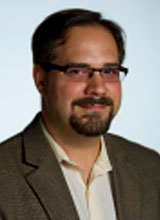
Josh Michaud is an Associate Director with the Global Health Policy team at the Kaiser Family Foundation, where he directs a variety of research projects. Dr. Michaud is an authority on the role of the Department of Defense in global health, innovative financing, and global health diplomacy, among other topics. Read more.
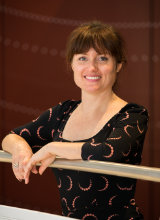
Siobhan is an infectious disease epidemiologist with expertise in public health and veterinary methods and applications. She has held academic posts at Tufts University in the United States (2009-2011), The University of Sydney in Australia (2011-2018) and The University of Liverpool in the UK (current). She currently leads the One Health Regional Network (HORN) project in Ethiopia and is based at the International Livestock Research Institute in Addis Ababa. Siobhan’s research focuses on the epidemiology of, and evidence-based approaches to, the management and control of zoonotic and emerging diseases in Australia and the Horn of Africa.
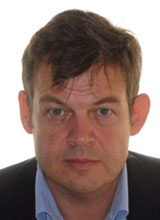
Gorik Ooms is a human rights lawyer and a global health scholar, Professor of Global Health Law & Governance at the London School of Hygiene & Tropical Medicine, Adjunct Professor at the Law Faculty of Georgetown University, and Visiting Professor at the Faculty of Medicine and Health Sciences of Ghent University. Read more.
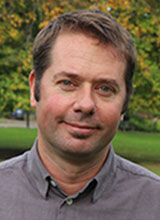
Simon joined the Department of Politics in January 2013. He took an undergraduate degree in Law and Politics followed by a Masters in International Law and Politics at the University of Hull. He moved to the Department of International Politics at Aberystwyth University in 2000 to undertake a PhD and subsequently held posts at Aberystwyth as Lecturer and Research Fellow. Read more.

Carmen Huckel Schneider is the Director of the Master of Health Policy and co-lead of the Politics and Governance of Health Group at the Menzies Centre for Health Policy. She is a Senior Lecturer in Health Policy at the Sydney School of Public Health, Faculty of Medicine, and Adviser, Knowledge Exchange, at the Sax Institute.
Carmen’s completed her PhD at the University of Tuebingen researching the legitimacy and stakeholder receptivity of global health organisations. Her current research interests include governance in global health, global policy networks, and linking international relations theory and health policy. Carmen currently teaches ‘Evidence into Policy and Practice’ and ‘Global Health Policy’ for the University of Sydney Masters of Health Policy. She has published on topics of legitimacy, effectiveness and theoretical aspects of global health governance and the use of evidence in health policy. Carmen also led the development of a program for improved evaluations of public health programs and has researched barriers and facilitators for good evaluation practice.

Frank Smith's research and teaching examine the relationship between technology and international security. His focus is on bio and cyber security: particularly on how inaccurate ideas about technology in these fields can influence decisions about war and peace. Read more.
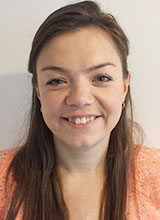
Dr Clare Wenham is Assistant Professor of Global Health Policy at Department of Health Policy, London School of Economics and Political Science (LSE) Clare’s work falls in the cross-over between global health and international relations focusing on global health security and global health governance. In particular, her recent research has concentrated on Zika, Ebola, and more broadly, on the governance structures of the global health landscape and global disease control. She previously worked at the Department of Infectious Disease Epidemiology at the London School of Hygiene and Tropical Medicine, delivering a series of projects relating to surveillance and transmission of infectious disease. Read more.
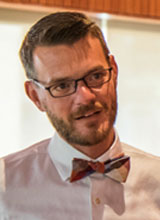
Jeremy's research focuses on questions of global health governance and global health politics. He is the author of three books and co-editor of two recently edited volumes. He has published more than 30 peer-reviewed articles and book chapters in a wide variety of outlets and is a member of the editorial board ofGlobal Health Governance. Read more.
View and sign the Sydney Statement here.

